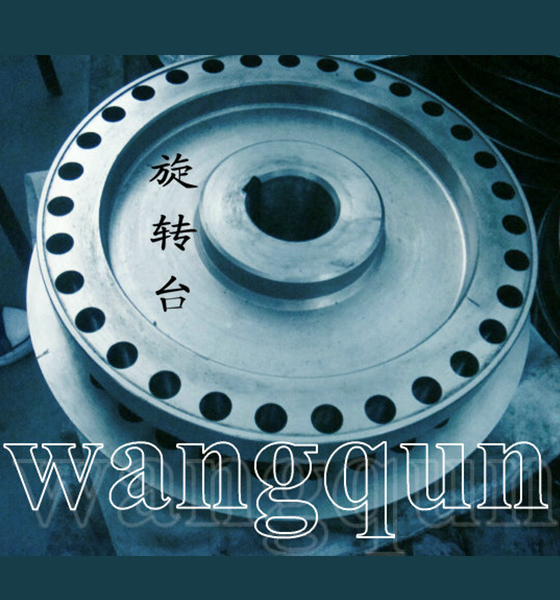Large tonnage tablet press for High-Volume Industrial Use
Introduction
The pharmaceutical, nutraceutical, and chemical industries rely heavily on tablet compression machines to produce large quantities of solid dosage forms efficiently. Among these machines, large tonnage tablet presses are essential for high-volume industrial production, offering superior output, precision, and durability. These presses are designed to handle heavy-duty compression forces, ensuring consistent tablet quality while maintaining high-speed production rates.
This article explores the key aspects of large tonnage tablet presses, including their design, working principles, applications, advantages, and maintenance considerations. By understanding these factors, manufacturers can optimize their tablet production processes for maximum efficiency and compliance with industry standards.
---
1. Overview of Large Tonnage Tablet Presses
Large tonnage tablet presses are heavy-duty machines capable of exerting significant compression forces (typically ranging from 50 kN to over 100 kN) to produce tablets in high volumes. These machines are widely used in industries where mass production is required, such as:
- Pharmaceuticals (e.g., tablets, capsules)
- Nutraceuticals (e.g., vitamins, supplements)
- Chemical industries (e.g., detergent tablets, catalyst pellets)
- Food and confectionery (e.g., compressed candies, effervescent tablets)
These presses are engineered for continuous operation, with features such as automated feeding systems, precision tooling, and advanced control mechanisms to ensure uniformity and minimize downtime.
---
2. Key Components and Working Principle
2.1 Main Components
A large tonnage tablet press consists of several critical components:
1. Hopper & Feeding System – Ensures a steady supply of powder or granules to the die table.
2. Die Table & Punches – The die cavity holds the powder, while upper and lower punches compress it into tablets.
3. Compression Rollers – Apply force to the punches to form tablets.
4. Turret – Rotates the punches and dies in synchronization with the compression cycle.
5. Ejection System – Removes finished tablets from the die.
6. Control Panel & HMI – Allows operators to adjust compression force, speed, and other parameters.
7. Safety Mechanisms – Includes overload protection, emergency stops, and guarding.
2.2 Working Principle
The tablet compression process follows these steps:
1. Feeding – Powder or granules are fed into the die cavities via a feed frame.
2. Pre-compression – Initial compression removes air and ensures uniform filling.
3. Main Compression – High force is applied to form the tablet.
4. Ejection – The tablet is pushed out of the die and collected.
5. Tooling Reset – Punches return to their initial position for the next cycle.
Large tonnage presses often feature multi-station tooling (e.g., 55-station or 75-station rotary presses) to maximize output.
---
3. Advantages of Large Tonnage Tablet Presses
3.1 High Production Capacity
- Capable of producing hundreds of thousands to millions of tablets per hour.
- Ideal for large-scale manufacturing and contract production.
3.2 Precision and Consistency
- Advanced control systems ensure uniform tablet weight, hardness, and thickness.
- Reduces waste and improves compliance with regulatory standards (e.g., FDA, GMP).
3.3 Durability and Reliability
- Built with heavy-duty materials (hardened steel, wear-resistant coatings) for long service life.
- Minimal maintenance requirements due to robust construction.
3.4 Flexibility in Tablet Design
- Supports various tablet shapes (round, oval, capsule-shaped) and sizes.
- Can produce multi-layer tablets, coated tablets, and controlled-release formulations.
3.5 Automation and Smart Controls
- Programmable logic controllers (PLCs) allow for real-time monitoring and adjustments.
- Data logging for batch traceability and quality assurance.
---
4. Applications in Different Industries
4.1 Pharmaceutical Industry
- Mass production of standard and specialty tablets (e.g., immediate-release, extended-release).
- High-speed production of OTC drugs (e.g., pain relievers, antacids).
4.2 Nutraceutical Industry
- Vitamin and mineral supplements in high volumes.
- Herbal and dietary supplements with precise dosing.
4.3 Chemical Industry
- Detergent and cleaning tablets (e.g., dishwasher tablets).
- Catalyst pellets for industrial processes.
4.4 Food Industry
- Effervescent tablets (e.g., drink mixes).
- Compressed confectionery (e.g., mints, chewable tablets).
---
5. Maintenance and Best Practices
5.1 Routine Maintenance
- Lubrication of moving parts to prevent wear.
- Inspection of punches and dies for damage or misalignment.
- Cleaning to prevent cross-contamination between batches.
5.2 Troubleshooting Common Issues
- Capping & Lamination – Caused by excessive compression force or poor granulation.
- Sticking & Picking – Due to improper tooling polish or formulation issues.
- Weight Variation – Often related to inconsistent powder flow or feeder issues.
5.3 Safety Considerations
- Operator training on machine handling and emergency procedures.
- Regular safety audits to ensure compliance with OSHA and other regulations.
---
6. Future Trends in Tablet Press Technology
1. AI and Machine Learning – Predictive maintenance and real-time quality control.
2. Energy-Efficient Designs – Reducing power consumption in large-scale operations.
3. Hybrid Presses – Combining compression with in-line coating and inspection.
4. 3D Printing Integration – Custom tooling and complex tablet geometries.
---
Conclusion
Large tonnage tablet presses are indispensable in high-volume industrial settings, offering speed, precision, and reliability for mass production. With advancements in automation and smart manufacturing, these machines continue to evolve, meeting the growing demands of the pharmaceutical, nutraceutical, and chemical industries. By adhering to best practices in operation and maintenance, manufacturers can maximize efficiency while ensuring product quality and regulatory compliance.
Investing in a high-performance tablet press is a strategic decision that enhances production capacity, reduces operational costs, and supports scalability in competitive markets. As technology progresses, these machines will play an even greater role in shaping the future of solid dosage manufacturing.
---
This comprehensive overview provides insights into the design, functionality, and benefits of large tonnage tablet presses, helping industry professionals make informed decisions for their production needs.











 Phone
Phone
Comment
(0)